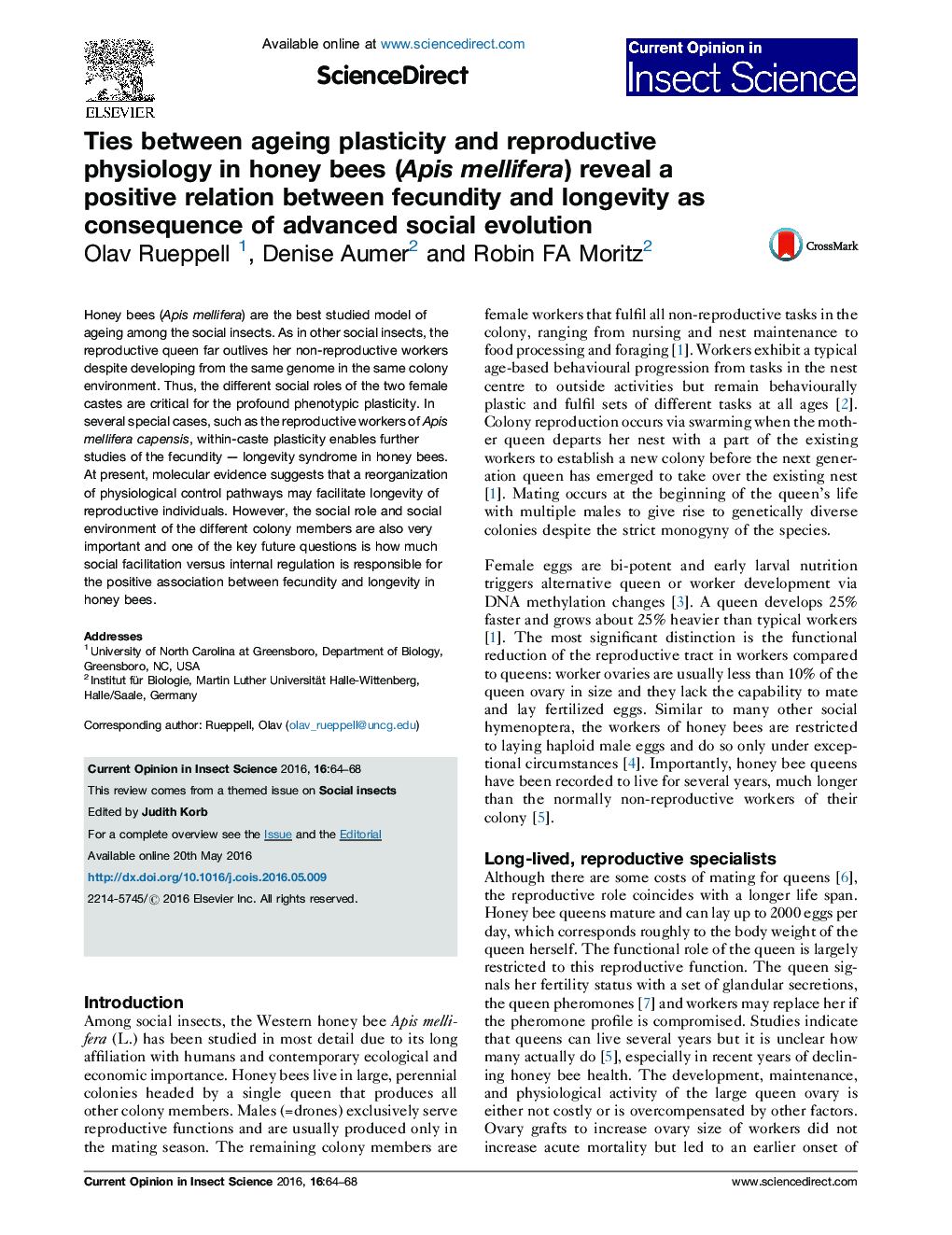| Article ID | Journal | Published Year | Pages | File Type |
|---|---|---|---|---|
| 6374013 | Current Opinion in Insect Science | 2016 | 5 Pages |
Abstract
Honey bees (Apis mellifera) are the best studied model of ageing among the social insects. As in other social insects, the reproductive queen far outlives her non-reproductive workers despite developing from the same genome in the same colony environment. Thus, the different social roles of the two female castes are critical for the profound phenotypic plasticity. In several special cases, such as the reproductive workers of Apis mellifera capensis, within-caste plasticity enables further studies of the fecundity - longevity syndrome in honey bees. At present, molecular evidence suggests that a reorganization of physiological control pathways may facilitate longevity of reproductive individuals. However, the social role and social environment of the different colony members are also very important and one of the key future questions is how much social facilitation versus internal regulation is responsible for the positive association between fecundity and longevity in honey bees.
Related Topics
Life Sciences
Agricultural and Biological Sciences
Agronomy and Crop Science
Authors
Olav Rueppell, Denise Aumer, Robin FA Moritz,
